Lactate threshold setting
-
@ChrisA said in Lactate threshold setting:
@BrunoH said in Lactate threshold setting:
Are the users skipping their manuals or are the docs missing something crucial?
It’s actually not described in the Race manual 🤨. There’s just one short sentence, that the Race can determine your lactate threshold, but not how to interpret this data.
A good reading start is here:
https://www.suunto.com/sports/News-Articles-container-page/must-read-articles-that-guide-you-into-suuntos-world-of-training/ -
Have you test yourself?
I mean, there are some Suunto+Apps that can help you pushing your body to identify better the lactate threshold like:- Cooper test https://www.suunto.com/suuntoplusstore/sportsapp/zzcoop01
- Anaerobic threshold test https://www.suunto.com/suuntoplusstore/sportsapp/zzanae01
Then(as @Egika suggested) read the online articles in Suunto page. Each Suunto+App has connected articles
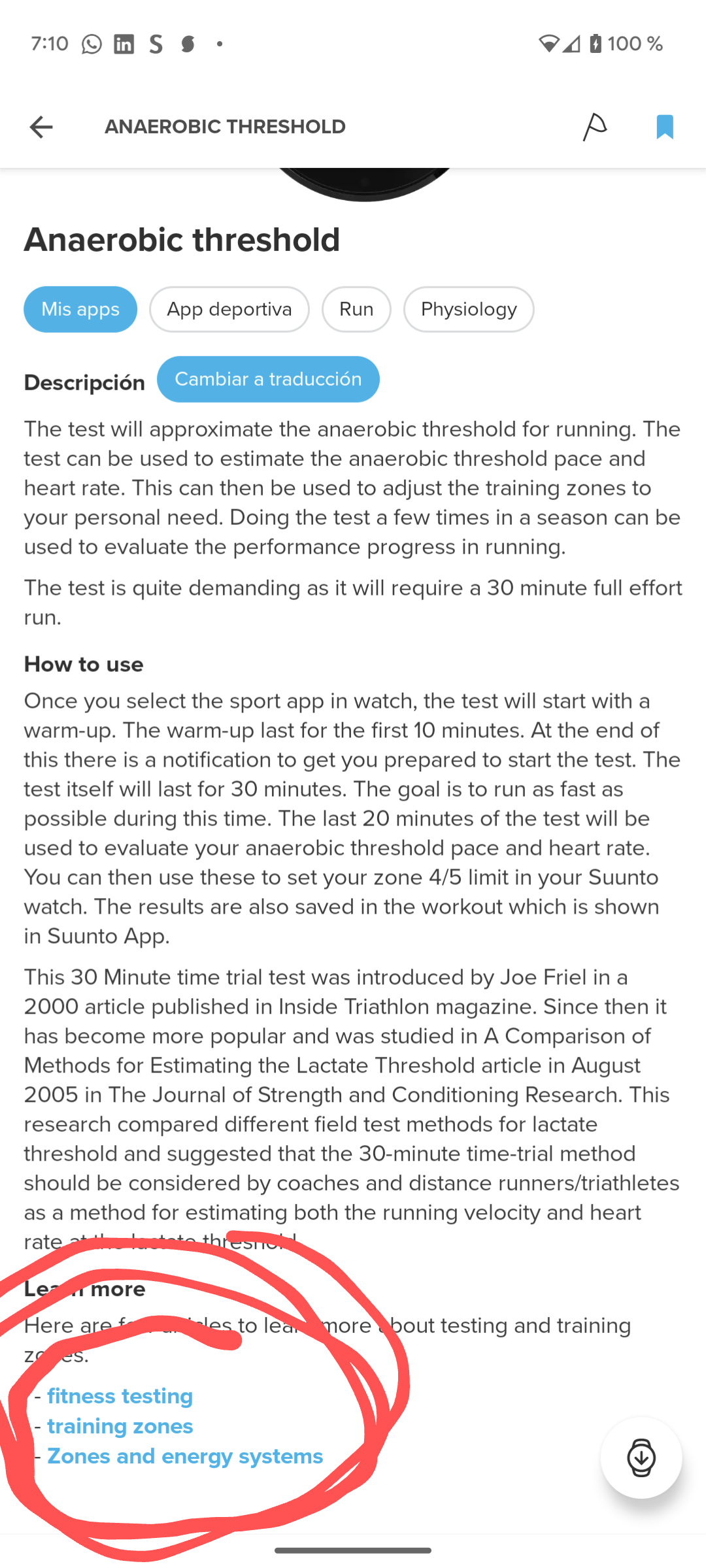
I hope this helps you
BR -
@suzzlo @Egika @deserthike20 thanks for all the good advice, it’s very appreciated
 I never did a professional lactate test, but with different Garmin, Coros and Huawei watches I got values for LTH around 155-160, which seemed alright too, and estimated my VO2 max between 39 and 42 (Suunto Race: 40.8). So Suuntos estimate of 149 is not too far away, but like @deserthike20 also stated a bit on the lower side.
I never did a professional lactate test, but with different Garmin, Coros and Huawei watches I got values for LTH around 155-160, which seemed alright too, and estimated my VO2 max between 39 and 42 (Suunto Race: 40.8). So Suuntos estimate of 149 is not too far away, but like @deserthike20 also stated a bit on the lower side.Thanks @deserthike20 for the picture of your LTH, showing 85%, I was puzzled, that it showed 81% for me, but that doesn’t seem to be a fixed value then. Thanks @Egika, I actually read most of the articles on Suunto‘s website and while they’re very interesting and I understand most of it
 , as a whole they’re also bit confusing. I will try one of S+ test like @suzzlo proposed, these days. Thanks guys!
, as a whole they’re also bit confusing. I will try one of S+ test like @suzzlo proposed, these days. Thanks guys! -
@ChrisA I were you I would repeat the test a couple of times more. The best would be making sure you wear a separate HR strap. Ask a friend if you do not want to buy one, it can make a lot of difference.
-
@ChrisA the definition of lactate threshold is unambiguous across articles, publications. In practice there a two kinds of metabolic thresholds, which can be determined by plotting lactate levels as the function of exercise intensity. The first is the intensity at which lactate levels start to rise above resting level. This is usually called aerobic threshold (which term is also not used consistently). The second threshold is above that, and is called anaerobic threshold, the definition of which varies across articles and studies. The key characteristic of this second threshold is that exercise at this intensity can be continued only to a limited amount of time (up to an hour or so AFAIR). This upper threshold is what should be treated as LT and to set the upper limit of Z4 in a 5-zone system. Your HR of 149 looks to me like the lower threshold, which is the upper limit of easy/moderate intensity.
I don’t know which threshold the algorithm int the watch is meant to determine. -
-
@halajos very good explained




 You wrote about the VT1 and VT2 Treshhold right?!
You wrote about the VT1 and VT2 Treshhold right?! -
@GiPFELKiND there are different terminologies, but they basically mean the same. Some refer to them as ventilatory thresholds (VT1, VT2), others as lactate thresholds (LT1, LT2). And MLSS (maximial lactate steady state) as well as critical power/speed are also used, which are different approaches to the upper threshold.
-
Hi! Is there any way to see lactate in the suunto app or just in the watch?
-
@Matija-S please don’t post the same question in different threads.
-
@isazi please LINK then here the other Post…
-
@Matija-S I didnt have this values since i have the Race … Not in watch! Do you have this!?

-
@isazi sorry, I didn’t find the newer post at first….
I will continue in the other post here :https://forum.suunto.com/topic/11103/lactate-threshold-estimate/8?_=1720978892352
-
@GiPFELKiND I read along here diligently and your approach sounds logical.
After my lactate test with the sports physician, I was given the training recommendation to avoid over-acidification in the GA1 zone, i.e. to stay at a maximum of 157 bpm. This allows me to train in the aerobic zone without accumulating lactate, which is ideal for long endurance workouts.
I now have a new max HR and a lactate threshold of 165 according to the Dmax model (see screens).
My watch suggests 161. How can I change this value?
You have also adjusted the value, haven’t you?Thank you for your input.
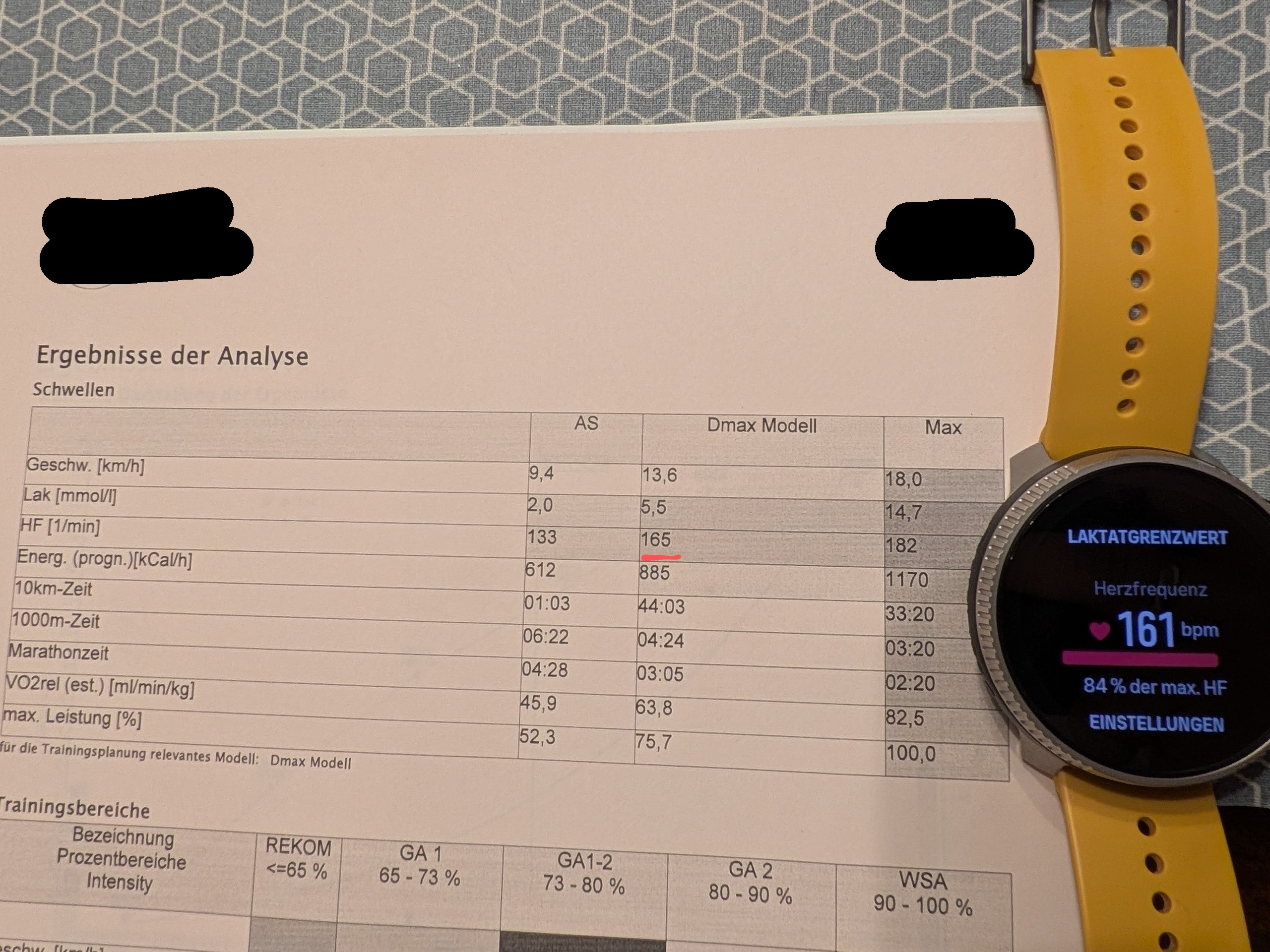
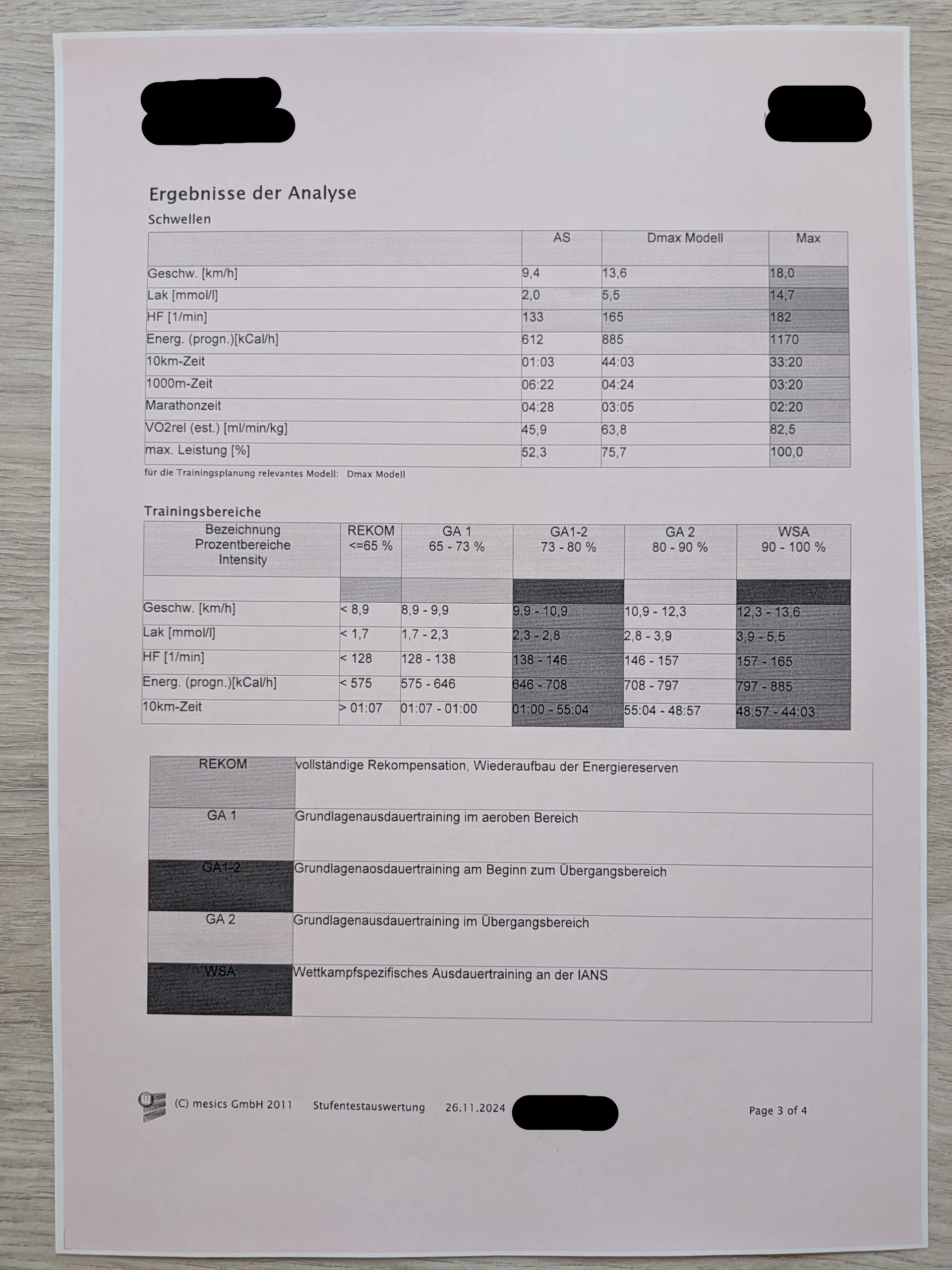
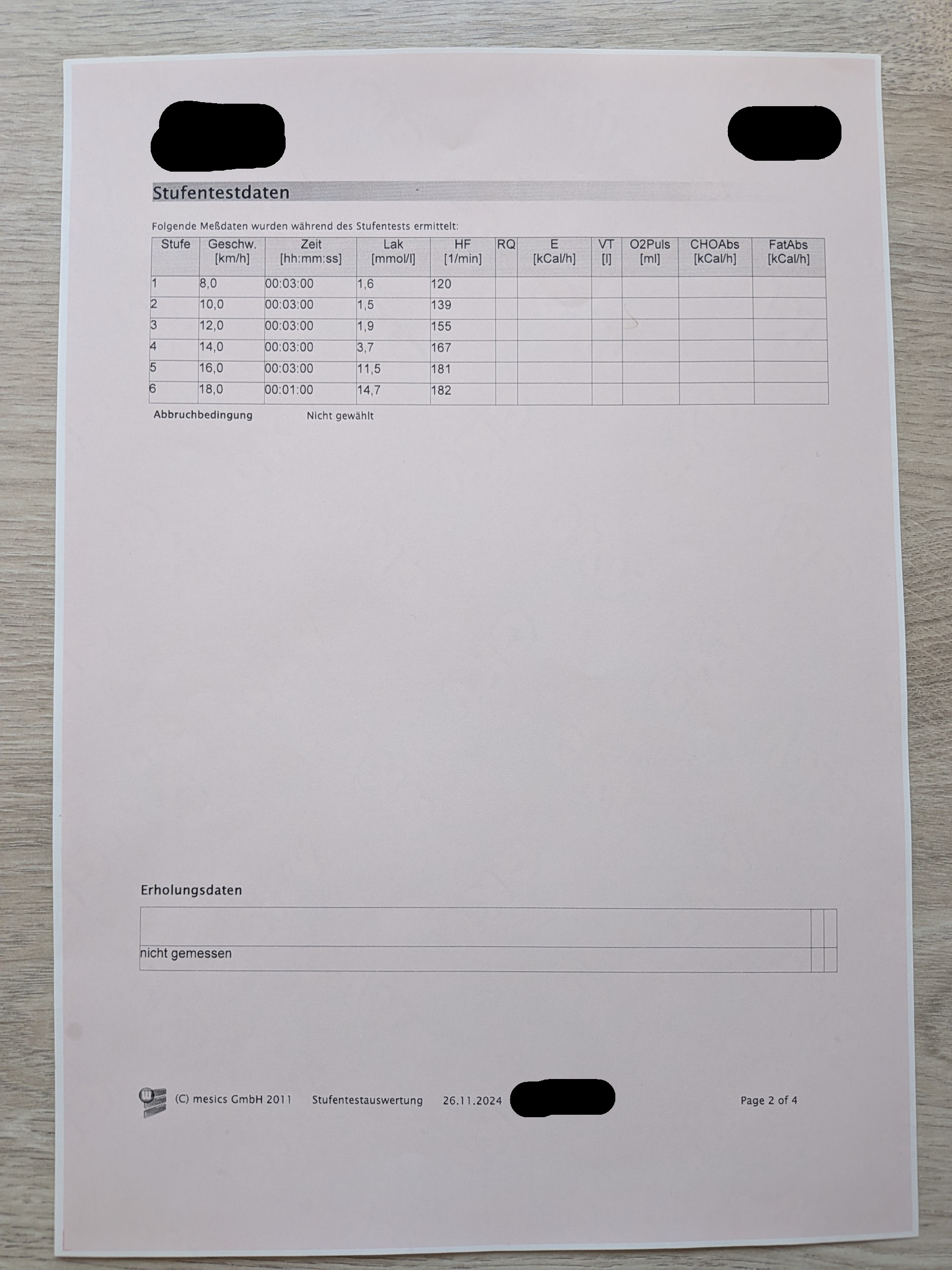
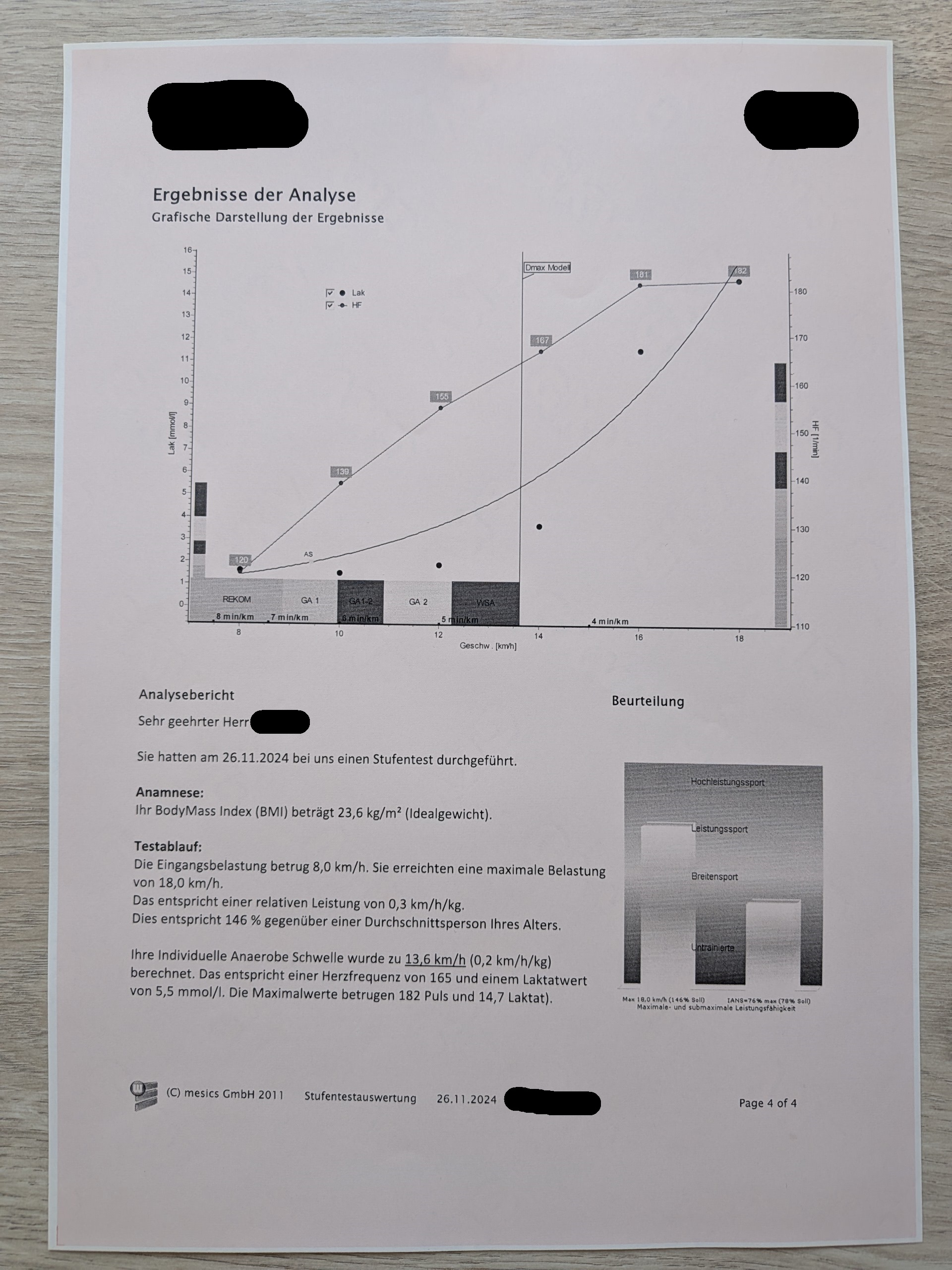
-
@laufbursche7 WhatsApp und Deutsch?
-
@GiPFELKiND ja sicher 🤩


 .
.